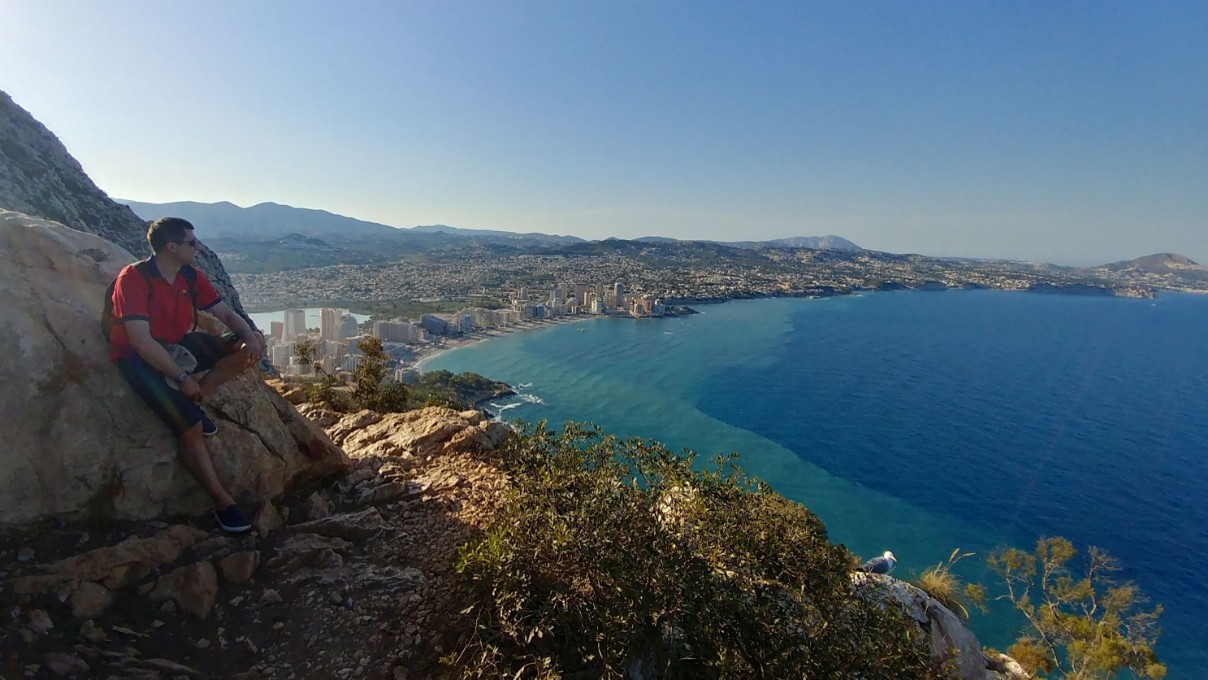
The world marvels discovery tool
TIPS & RECOMMENDATIONS
If you are going to use MARVELS OF THE WORLD on the terrain, please read first the following:
TIPS AND RECOMMENDATIONS FOR THE EXPLORATION OF UNKNOWN PLACES:
• Avoid going out alone. Going alone, especially on unknown trails and innaccesible places may be reckless. If you do, communicate your travel and time back to others.
• Take with you plenty of water, solar protection and appropriate clothing and footwear.
• Preferably, move in a sustainable way: on foot, by bike, by public transport, by shared vehicle...
• For your safety and that of the environment, always try to stay within signalled roads and avoid taking cutoffs.
• All trails and roads used in Spain require that your motor vehicle is insured and that you are trained and licensed to drive.
• If you use a motor vehicle, you must ensure that it is properly equipped with the necessary and suitable tyres, spare parts, protection, first aid kit, communications devices (and batteries!), luggage and camping equipment.
• Carry a mobile phone with enough battery in case of emergency (112), but remember that there is not always coverage. Mobile phone coverage may be patchy or non-existent in some areas, so the ability to ask for help could be limited. Do not relay on always having the ability to call an ambulance or emergency services to rescue you in case of urgent necessity. Even if you can ask for help, it can involve serious difficulties to get there where you are or take a long time to find you. In addition, this could result in high incurring costs.
• Moderate your speed and adapt it to the terrain you are driving on. Go/circulate with awareness of the surface of the terrain you are stepping on and in anticipation of unexpected hazards.
• Roads and trails can be very varied. Unpaved tracks range from gravel or broken tar, to sand, stone, rock or grass. Each involves its own gripping, stability and unpredictability challenges, which can be greatly altered by existing weather conditions that may also change quickly, especially in mountain areas. What on the map may seem like a road suitable for vehicle traffic can result in rocky terrain or an impassable muddy trail. Do not just venture into trails simply because they are on a map, some roads can be terribly technical or totally inadequate even for the most experienced drivers.
• Check the weather forecast before starting your activity.
• Dogs or other animals may suddenly appear on the trails running freely. Do your best to avoid them and be kind to them.
• Do not disturb or feed the animals. It would negatively alter their behavior.
• If you bring a dog, carry it on your leash and make sure it does not bother other animals or people.
• Slow down the march when encountering cattle, horses, or other animals. Even stop your vehicle and stall the engine if necessary, so as not to scare them.
• Obey the golden rule which is respect and do not unnecessarily disturb other users and animals in the environment.
• If you stray onto a particular or private area, apologize and return to the public road or path immediately.
• Be prepared to turn around and find an alternative route. Some roads or trails may end up impassable or may be temporarily or permanently closed in the short term according to current local laws.
• Do not ride or drive on trails beyond your capacity. If you are not sure, get out of your vehicle and and walk down the trail first.
• Many rural roads are rarely maintained. You can find grooves, holes, floods, treacherous surfaces and other occasional hazards placed even deliberately by people who do not want vehicles to use them.
• When you use tracks and roads, you do so at your own discretion and responsibility. You should rely on your own skills and your own navigation. The most navigation tools can do is to tell you where the places are, but their physical and legal accessibility is not confirmed or guaranteed and can even change at any time.
• Respect road barriers and local laws. The decision to use a path or path is entirely yours and you accept and assume full responsibility for your actions or possible violations of the law.
• The physical demands of walking, cycling or motorcycle riding or driving a vehicle off-road, with or without cargo, shouldn't be underestimated. If you have an accident with your vehicle, recovering it from a hillside, river or mud hole where it may have slipped can be exhausting. Heat or cold and dehydration can affect performance and make the complicated task of driving off-road dangerous.
• Navigation can be challenging, especially if you don't use a GPS navigator or moving map tools.
• Mechanical problems, easily resolved in the garage itself or in the city, can become much more than a challenge away from home in an area with little infrastructure or away from the spare parts dealer.
• Adults and children of the place (and animals!) may be unfamiliar with motor vehicles or their abilities and misunderstand situations. Rules and driving discipline can vary greatly from site to site and often with little regard for the driver of a small vehicle.
• Stretch caution in adverse conditions and in the presence of animals or motor vehicles.
• Local fauna, both domestic and wild, can pose risks. Wolves or even bears may appear in some areas, snakes in others, and livestock and dogs are everywhere.
• Inform yourself in advance of the possible existence of hunting activity.
• Laws and regulations often change in different parts of the country, so what you may believe was legal, it may not be now. This can lead to conflicts with authorities, communities, local landowners, or other users.
• Sanitary and hygiene concepts and practices vary greatly and facilities may be scarce, deficient or distant.
• In remote and lonely locations you could also be the victim of theft, assault or fraud.
• Get fit. If you have a medical affection or physical handicap, assess it, take medical advice, and think carefully about the implications of it iwhen you are circulating far away or in remote places
• Against COVID19, keep your safety distance and wear a mask when it is not possible to avoid crowds and when contacting with surfaces, wash your hands frequently and use hydroalcoholic gel. Take care of your health and that of others.
• Start your journeys with your vehicle always ready to travel. Familiarize yourself with it, with the routine checks you should perform and how to solve problems and breakdowns that could arise.
• Take safety precautions with your possessions and yourself.
• Always follow an exquisite code of conduct with your surroundings and those around you and become an ambassador for the exploration of territories in an educated and responsible manner. Practice responsible and committed tourism. Be a true ecotourist!
• Collaborate to prevent forest fires. Do not throw cigarettes or any other object that may be inflammable to the ground.
• When consuming local products and interacting with local companies you will contribute to rural development.
• Prioritize people with special needs.
• Trash does not come back alone. Take it with you to the nearest container.
• Do not leave any trace of your passing in nature.
• Noise is another form of contamination. In silence you will enjoy more your experience.
• Pespect the facilities available to you. Their maintenance is paid by all.
• Remember that animal capture, lighting fire, fishing and collecting plants or minerals is prohibited.
• Your safety is our concern, but it is your responsibility.
Thanks for your cooperation!
TCS Adventure



